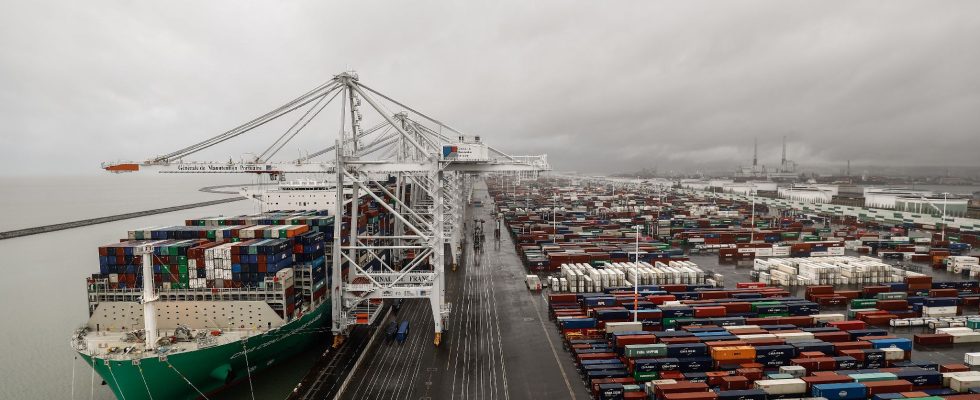After a record year 2022 for the worst, France’s trade deficit is rebounding. According to data published this Tuesday, August 8, by the delegate ministry in charge of foreign trade, attractiveness and French people living abroad, French foreign trade in goods fell to 54 billion euros in the first semester against 89 billion euros in the previous semester, at the end of 2022. Although it is still much higher than those observed in the years preceding the war in Ukraine, “there is still a long way to go for a return to balance in the balance commercial but we are on the right track”, commented the French Minister for Foreign Trade Olivier Becht, presenting these figures during a conference call.
In 2022, a year marked by the Russian invasion of Ukraine and a global energy crisis, France had recorded a deficit of 164 billion euros over the whole year, unheard of in the country’s history. This was almost double the historic record of 2021. France has, however, been in chronic deficit for twenty years for its trade in goods with the rest of the world, the last trade surplus dating back to 2002.
A lull linked to the decline in energy prices
According to analysts, much of the lull comes in the first half of the year due to a decline in energy prices: the energy bill in France this time is 36 billion euros, which “remains important”, recognized the French minister, where it generally evolves under 30 billion. Excluding energy and military equipment, the trade balance shows a deficit of 30 billion euros, the ministry said.
In addition to the effect of the fall in the energy bill on the trade balance, certain key sectors of French industry have played their part. Aeronautics thus saw its exports grow by 12%, and present a surplus of 16 billion euros, while perfumes and cosmetics grew by 7% to generate a surplus of 8 billion euros. Exports from the automotive sector increased by 8%, largely driven by electricity, and the textile sector advanced by 3%. Everything is therefore not linked to energy, underlined Olivier Becht: the French trade balance improved by 7.3 billion euros excluding energy and military equipment. In addition, the number of exporting companies increased to 147,900 in the first quarter of this year, said the ministry, which expects 200,000 exporting companies by 2030.
Among the less encouraging news from these latest data: exports in the agriculture and agri-food sector fell by 5%, in particular due to a return to normal for the prices of agricultural raw materials.
The balance of services in surplus of 20 billion
France, on the other hand, can still pride itself on its excellent results in services. The services balance has stabilized after posting record surpluses last year, due in particular to a lull in freight costs which had propelled the French figures in 2022. The services balance is in surplus by 20 billion euros. euros, a level “far above pre-crisis levels”, rejoiced the ministry, thanks above all to tourism which shows a positive balance of around 11 billion euros.
Finally, the balance of income, which includes financial services, generated a surplus of 14 billion euros, driven by the increase in income from foreign direct investment (FDI). The current balance, which combines the balances of goods, services and income, shows a deficit of 10 billion euros.
